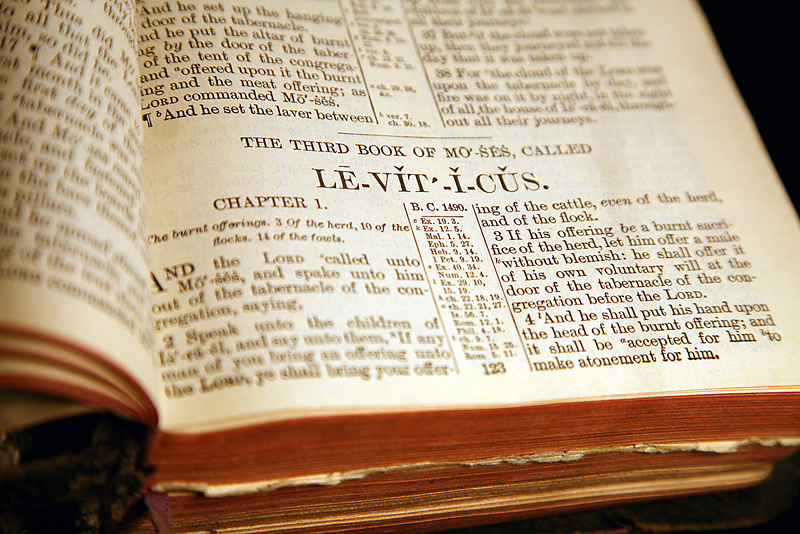This new video will appear only on our Hoshana Rabbah Rumble channel, since it contains contents that the antichrist activists at YouTube will undoubtedly ban. Please subscribe to our Rumble channel, so you don’t miss any of our life-changing, YHVH-glorifying and edifying videos for your blessing! Shalom. Please subscribe at https://rumble.com/c/HoshanaRabbah.
Tag Archives: Leviticus 26
Bechukotai—Curses Upon the Disobedient: Terror, Pestilence & Famine
It’s time to wake up and face reality! When we obey the Creator’s laws we are blessed, and when we disobey his commandments we are cursed. The rise of national and global terrorism, rampant diseases and the threat of famines, even in the first world nations, is the consequence of our sinning against the Creator, of breaking his laws, and is a fulfillment of end time biblical prophecy. There is no need to be confused, frightened or alarmed by the crazy events going on around us if we are living righteously. In this video, we identify the problem, its root cause and the solution.
Leviticus 26 on Divine Blessings and Curses

Leviticus 26
Divine Blessings and Curses Are Based on Obedience to YHVH’s Torah-Word
As divine blessings come upon people for Torah obedience, so do curses come upon a people who have forgotten their Elohim because they have been blessed materially and in their self-sufficiency have forgotten who is the source of their blessings as this chapter shows. These are immutable laws that are written in the universe and no human-devised philosophical or religious ideologies regardless of their cleverness can circumvent them. To go against these laws is like attempting to push a giant boulder up a steep mountainside. Eventually the boulder will role backwards crushing the pusher. What wisdom can be learned from this passage on blessings and curses?

YHVH’s Torah instructions continually stresses that blessings are contingent upon obedience to YHVH. Similarly, Yeshua reveals that rewards in his everlasting kingdom are also contingent on obedience to his Torah-laws. The greater the obedience, the greater the reward (Matt 5:17).These principles are universal, yet how prone humans are to forget the cycles of history that repeat themselves over and over again like the unstoppable turning of giant millstone grinding into powder those who refuse to learn the lessons from the past. Each generation proudly asserts its exceptionalism and that, somehow, it is immune to YHVH’s inexorable and immutable principles of divine judgment. Only in the perfect hindsight of history can we see the fallacy of this assumption. Ancient Israel failed to learn these lessons as have subsequent people who are both ignorant of Scripture as well as many who claim to follow the Bible.
In the case of America, and Great Britain before her (and other formerly European Christian nations as well), there was in times past a national consciousness of core biblical values and, to one degree or another, a general public acknowledgement, acceptance of and respect for the Elohim of the Bible. However, as the historical record reveals, as a nation becomes blessed, it reaches an apogee of prominence, power and wealth where it becomes rich and increased with goods and no longer needs Elohim—or so it thinks. It then becomes materially fat and forgets the source of its wealth and falls into a state of self-sufficiency leading to spiritual blindness in that it fails to recognize its true spiritual state (recall YHVH’s warning to a lukewarm church in Rev 3:14–22). This can happen to individuals, churches and to whole societies.
Because YHVH loves his people and wants to walk among them, to be their Elohim and to bless them (Lev 26:12), when they disobey him and walk in ways that are harmful to their well-being, like any loving parent, he is forced to discipline them. Again and again he sends them his prophets and watchmen to warn them that they are on a path of self-destruction. But because of pride, most people refuse to humble themselves and repent (Lev 26:40–41). It is the same old story over and over again. Human pride insists that “judgments cannot happen to us because we are so special, ” and “All things will continue as they have from the beginning and no evil shall befall us.” Such a self-assured individual and society retorts in mocking and scoffing tones in response to all those who would hold them accountable for their errant ways (2 Pet 3:3–7). If only the great people, nations and empires that have already trodden this well-worn path and are now in the dust bin of history could speak from their graves and this generation had heart ears to hear!
As a loving Father, YHVH does not lower the gavel of his full disciplinary judgments immediately upon his wayward children. He increases the dosage of his spiritual medicine incrementally in hopes that each successive ratcheting down of his judgments will bring healing to his spiritually apostate children such that they will humble themselves, confess their iniquity (or Torahlessness, Lev 26:40) and repent of their sin and submit to his laws, so that he can bless them.
In this chapter, YHVH reveals four sets of judgments with each one becoming seven times more severe than the previous one (Lev 26:18, 21, 24, 28). This reminds us of YHVH’s end-times judgments upon a rebellious world that has given itself over to devil worship just prior to the return of Yeshua as prophesied in the book of Revelation. In that book, there are seven seals, seven trumpets, seven thunders and, finally, seven bowl judgments.
What can you do? You may not be able to change society, but a societal change begins one step and one life at a time; it starts with your life! That is the only thing for certain that you can change. No one person can turn the whole earth into a beautiful garden, but you can start by eradicating the weeds from your own garden. You know what needs to be done. Just listen to your conscience—to YHVH’s Spirit knocking at the door of your heart (Rev 3:20), and then repent and obey YHVH and his commandments. It is that simple.
The corollary to this passage on blessings and curses with regard to Torah obedience is Deuteronomy chapter 28.
Some More Reflections on Divine Judgment

By dictionary definition, judgment is “a decision of a court or judge; a misfortune or calamity viewed as a divine punishment.”
The Bible speaks a lot about judgment. When we read about the subject of judgment in the Bible, it usually pertains to the “other guy” involving someone in the past, or someone in the future, or someone that we consider to be more sinful than we are. The problem is that our pride prevents us from thinking that Elohim’s judgment could happen to us.
Judgment is nothing more than suffering the consequences of our actions. It’s simply a function of the law of cause and effect. If you jump off of a building, you’ll suffer the consequences of your actions when you hit the ground. Similarly, when we break YHVH’s commandments, we will suffer the consequences. Judgment is also a matter of degrees. To the degree that we obey his commandments, we’ll reap the blessings of obedience. Conversely, to the degree we disobey them, we’ll reap the negative consequences (Lev 26:3ff cp. 14ff) in the same way that jumping off a two foot ledge versus a 500 foot ledge has different consequence—a twisted ankle compared to death. For most of us, our actions with regard to obedience to YHVH’s laws are a mixture of both good and evil, so we’re reaping both blessings and curses at the same time.
Continue reading
